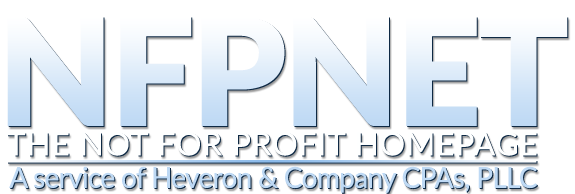With all of the pressure on funding and fundraising, gaming will be an option for some charities. Whether it involves an annual raffle as part of your major event, or bingo that happens throughout the year, if you are going to consider gaming you need to know the rules.
There are federal and state rules about charitable gaming. Federal rules are primarily about what kinds of activities constitute unrelated business income and what reporting is required.
New York State Gaming Commission regulates gaming activity in the state. If you carry on gaming, you are required to register with New York State Wagering and Gaming and in your local county.
New York State has guidance and regulations for raffles, Bingo, Bell Jar tickets a.k.a. Pull Tab Tickets and Las Vegas Nights or casino games.
Some of the key rules that you need to be aware of are:
- You need to first apply for registration and an identification number with New York State. You can find this form if you Google “New York State 1A Application for Registration and Identification Number”.
- You may also need a games-of-chance license and supplemental forms
- For bingo, you need a special bingo license, and there are several reports to fill out, including cash control reports and quarterly statements of bingo operations.
Reporting is simpler for charities that have less than $30,000 in raffle profits for a calendar year. Much more extensive reporting is required if you are over that limit.
IRS focuses on whether activities are subject to Unrelated Business
Income (UBIT) reporting and taxation. Raffles are generally exempt from UBIT, and bingo is exempt from UBIT in New York State (because for-profits cannot carry on bingo in New York State). However, there is a strict definition of bingo that requires that winners be determined and prizes be distributed in the presence of all persons with wagers in that game.
Several games such as pull tabs and scratch offs, as well as instant bingo and internet bingo, don’t meet IRS’ definition of bingo. These games are not automatically exempt from unrelated business income taxation, although they may be exempt if substantially all activities related to these games are carried on by volunteers. Substantially all means at least 85%, and volunteers are defined to include individuals who don’t get regular compensation, tips, goods or services or other benefits that are proportional to the services they provide. Even contributions to another exempt organization in exchange for volunteer labor provided by that organization will violate the volunteer exception.
IRS also has regulations about reporting winnings. Specifically, when a winner receives at least $600 and that amount is at least 300 times the wager, this must be reported on form W-2G. For example, someone who wagered $5, and wins $750 would not be subject to this reporting requirement because $750 is not 300 times the wager. However, bingo winnings are only reported once they total $1,200.
Withholding is generally required when winnings are more than $5,000 or more than 300 times the amount wagered. This doesn’t apply to bingo but does apply to raffles and poker tournaments.
More information can be found in IRS’ recent publication 3079. This publication also points to other resources for gaming. Including the NYS Gaming Commission website on charitable gaming found HERE
Final note – IRS and the state share information about charitable gaming. IRS wants to make sure that it is being properly reported and New York State wants to be sure that registrations and reporting are complete.
Charitable gaming can be a useful source of additional unrestricted revenue, as long as you understand and follow the rules.
